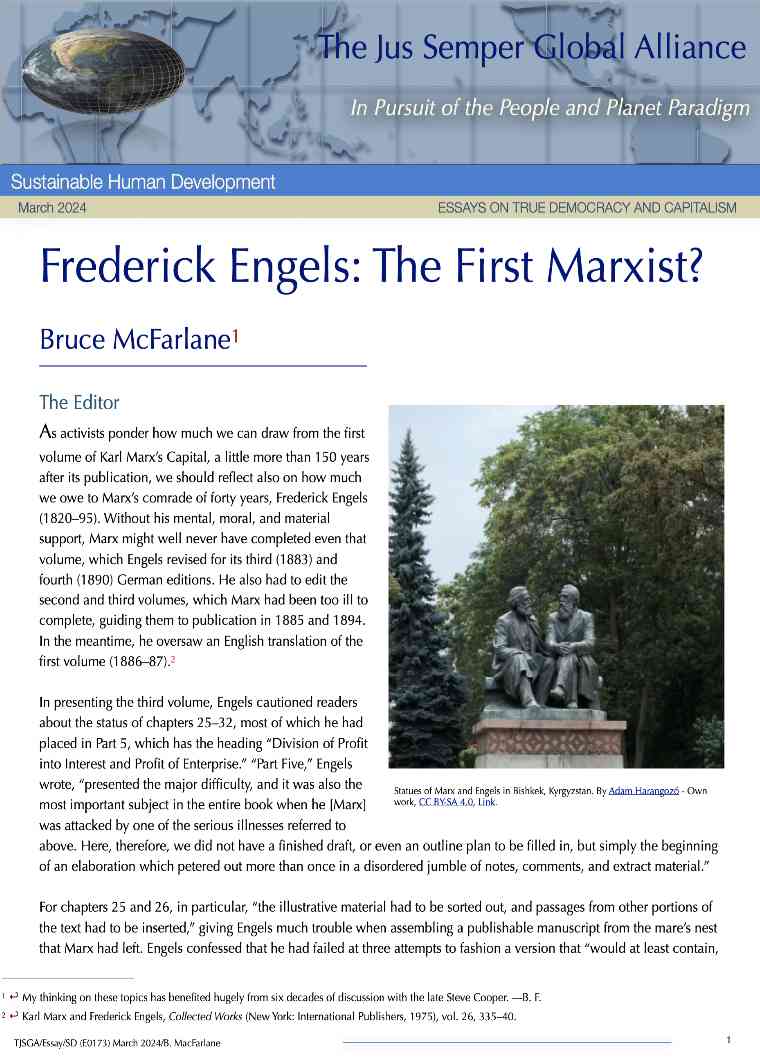Frederick Engels: The First Marxist? Bruce McFarlane From the respectful attention that Engels gave to Marx’s discoveries, no less than from his own extensions of them in tune with fresh actualities, we learn how to better interpret both evidence and concepts for guiding change toward the communist ideals that Engels had absorbed before meeting Marx in 1844.74 Furthermore, the roles that Engels filled as organiser, economist, and polemicist in the development of Western labor movements illumine how we can best honor his memory and his contributions to Capital. In the words of one biographer, Engels “wanted no monument other than the coming socialist revolution.”
For a full read of this essay, click here or on the picture to download the pdf file.
|

- © The Jus Semper Global Alliance
| Home |  | Resources |  | Economic Data |  | Frederick Engels: The First Marxist? |


